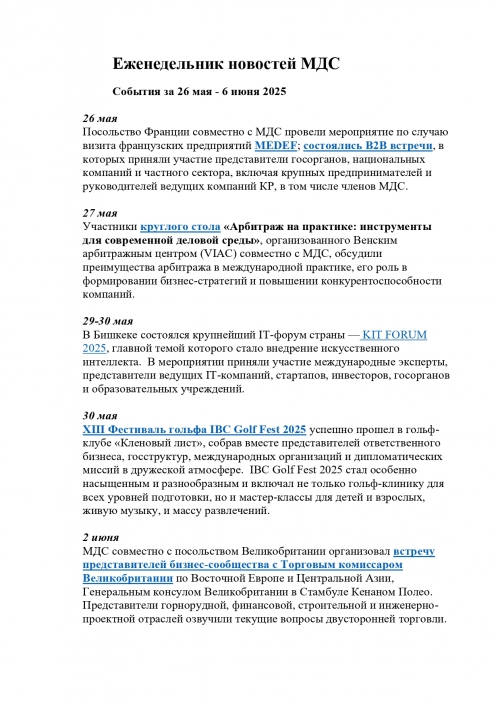Analysis /
Articles /
Kazakhstan due to privatise 43 state firms and signs new PPP law

Kazakhstan has announced plans to sell off state-owned stakes in 43 large state firms during 2016-17 as part of President Nazarbayev's ambitious privatisation programme. Continuing the recent flurry of investment forums, Turkmenistan sought to attract foreign investment at its own forum last week, with representatives of the EBRD, IDB and Turkish-Turkmen Business Council in attendance. Furthermore, Pakistan and Uzbekistan are enhancing trade ties and regional connectivity with numerous agreements signed during bilateral talks held in Uzbekistan this week.
Legal alert: Law on Public-Private Partnerships signed in Kazakhstan
In a major legislative development, Kazakhstan is implementing a new law on public-private partnerships. As such, our team has prepared an extended overview of the major aspects of this new law, which is due to enter into force next week on 23 November 2015.
Kazakhstan’s President Nazarbayev has signed the Law “On Public-Private Partnership” (the “Law”) which provides for the conditions of cooperation between the state and private businesses in Kazakhstan. The law is aimed at ensuring the country’s sustainable social and economic development and will enter into force on 23 November 2015.
The Law regulates the main approaches and phases for the implementation of public-private partnership (PPP) projects, and outlines the challenges, principles and defining characteristics of PPPs. It also provides guarantees for the rights and interests of the participants of PPPs, the forms of their participation in projects and the means of state support.
The participants of PPPs include: (i) the state (ii) entrepreneurs and (iii) financial organisations that provide project financing. The Law stipulates the conditions for sources of financing for PPP projects, the reimbursement of expenses to subjects and income generation.
The Law also stipulates that a private partner may be selected on the basis of (i) a tender or (ii) direct discussions. It also defines the qualification requirements that a potential private partner must satisfy in order to participate in a tender process, the conditions for a tender process and the procedure for the conclusion of PPP agreements.
Specifically, the new definitions include the following:
-“Private partner” - a sole entrepreneur, partnership, consortium or legal entity, except for persons acting as public partners in accordance with the Law, entered into a public-private partnership agreement;
-“Public partner” - the Republic of Kazakhstan, on behalf of which the Government of the Republic of Kazakhstan or local executive body of the region, city of republican status and the capital, as well as their other authorised state authorities and subjects of quasi-public sector, 50% and more of voting shares (interests in the charter capital) of which are directly or indirectly owned by the state, concluded a public-private partnership agreement;
-“Public-private partnerships” - a form of cooperation between the public and private partners corresponding to the characteristics defined in the Law;
-“Direct agreement” - a written agreement between the public partner, private partner and creditor of a private partner for the implementation of a public-private partnership project of special importance.
In addition, President Nazarbayev has signed the Law “On amendments and additions to some legislative acts of the Republic of Kazakhstan as to the public-private partnership”. The purpose of this legislative act is to bring current Kazakh legislation into compliance with the new Law.
This Law is also aimed at implementing some of the “100 Concrete Steps” and regulates the issues involved in attracting investment for the construction of infrastructure for the Kazakh population.
Kazakhstan plans IPOs for 43 large state firms in 2016-17
The Samruk-Kazyna sovereign wealth fund has announced that Kazakhstan is planning on selling stakes of at least 25% in 43 large state-owned companies via initial public offerings (IPOs) in 2016-17. The businesses due to go public include the oil and gas company KazMunaiGas, the uranium company Kazatomprom, the railway company Kazakhstan Temir Zholy and the mining firm Tau-ken Samruk.
Stakes in the electricity firms united under the sovereign wealth fund's Samruk-Energo division will also be put up for sale. Samruk-Kazyna manages state-owned stakes in companies representing all major branches of Central Asia's largest economy.
Two sources close to the government told Reuters this month that the companies in which the state would sell stakes included the Eurasian Resources Group, the flagship carrier Air Astana and Kazakhtelecom. These companies, however, were not mentioned in Samruk's statement.
The fund said that in addition to the 43 large companies mentioned above, it would also privatise 182 “non-core assets” through auctions during the same period.
Pakistan and Uzbekistan agree to enhance trade ties and regional connectivity
Pakistan’s Prime Minis¬ter Nawaz Sharif and Uzbekistan’s President Islam Karimov have expressed satisfaction over the ties between the two countries and stressed the need for harnessing the full potential of bilateral cooperation in various spheres. The remarks were made at a joint press conference after numerous agreements had been signed.
Sharif said his government was keen to strengthen its ties with Uzbekistan, adding that the China-Pakistan Economic Corridor and other connectivity projects would help ensure regional development and prosperity.
A memorandum of understanding was signed between Pakistan’s Trade Development Authority and Uzbekistan’s Ministry of Economic Affairs and Investment to enhance bilateral trade. A protocol for establishing an inter-governmental arrangement to avoid double taxation was also signed.
Turkish company to construct cement plant in Uzbekistan
The Turkish Dal Engineering Group will commission a new cement plant in the Surkhandarya region of Uzbekistan with a capacity of 1.5 million tonnes of Portland cement by late 2017. The Turkish company and Almalyk Mining and Metallurgical Combine (AMMC) have signed a memorandum of cooperation for the construction of the cement plant.
Construction of the facility is estimated to cost $225 million and will potentially be financed by a $90 million loan from Uzbekistan’s Fund for Reconstruction and Development, loans from the country’s commercial banks totalling $110 million, and the equity of AMMC, worth $24.4 million.
Samsung Engineering aiming to build a petrochemical plant in Uzbekistan
A Samsung official made the following statement: “We have agreed with Uzbek Neftegaz, Uzbekistan’s state-owned oil company, to conduct a conceptual study for a benzene-toluene-xylene [BTX] plant. It is a kind of rough sketch of the facility, not yet a deal to build.” The value of the BTX plant project was not announced.
Turkmenistan seeks to attract foreign investments
The seventh International Investment Forum of Turkmenistan was held in the Avaza national tourist zone last week and was organised by the country’s Chamber of Commerce.
Discussions at the forum covered issues related to the financing of the development of the oil, gas and petrochemical complex, the health and medical industry, the transport and communication sectors, and financial and banking institutions.
The forum participants included representatives of the International Road Transport Union, the Islamic Development Bank, the France-Turkmenistan Chamber of Commerce, the European Bank for Reconstruction and Development, the Turkish-Turkmen Business Council, the Union of Chambers and Commodity Exchanges of Turkey and leading companies from China, France and Spain.
Kazakhstan launches Central Asia’s largest transport and logistics centre
Central Asia’s largest transport and logistics centre has been launched in Astana, Kazakhstan.
The country’s railway operator, Kazakhstan Railways, has said that the centre will provide integrated storage services with a full cycle of multi-modal logistics.
Transport and logistics centres will also be built in other major cities in Kazakhstan, such as Aktobe, Pavlodar, Almaty, Uralsk, Atyrau, Kostanai and Semey as part of a programme to create external and internal terminal networks.
Tajikistan approves external borrowings programme
On 18 November, the lower house of Tajikistan’s parliament approved the country’s Foreign Borrowings Programme for the period 2016-2018. Speaking in parliament, Finance Minister Abdusalom Kurboniyon said the programme provides for the attraction of borrowings worth more than $670 million, which will be used to develop the most important sectors of the national economy, including transport, communications, agriculture, energy and healthcare.
Kurboniyon said the money will be borrowed from international financial institutions and funds. Moreover, 35% of the total borrowings will be accepted on a grant basis.
http://us4.campaign-archive2.com/?u=d1e6f0d745e7feb80889ed4b2&id=1940e1e062&e=e494bf5ad2




























